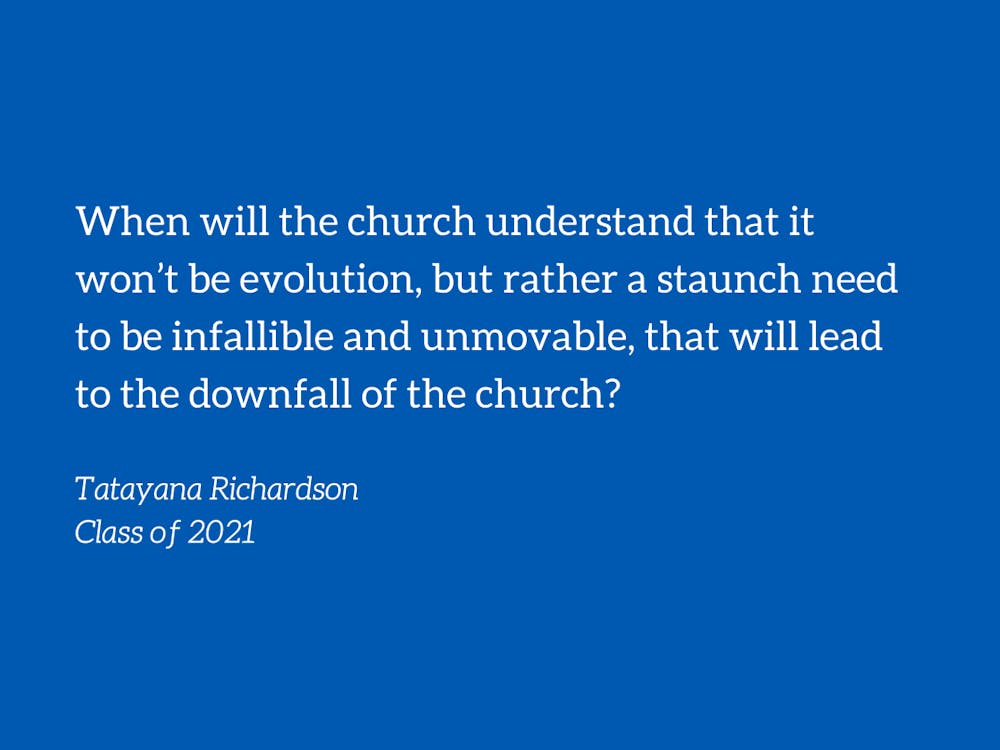Over the past several weeks, I have been working toward composing the next chapter of my thesis, and part of this work was reading some of the essential works of Martin Luther. And as I continued to read, something became increasingly clear to me. In every iteration, the church has had a perpetual fear of change.
See, the Catholic Church was scared of Luther’s propositions, so much so that they considered his words blasphemous and exiled him. And thus protestantism became the groundwork for Protestantism. Yet even as Martin Luther stepped outside of the bounds of the Catholic Church, he too feared change, as he began to realize that even those who supported him would not interpret or always wholly agree with theological constructions– and that on occasion they might offer his reformation critique.
Now, as a person who is generally a creature of habit, I have some sympathy toward the general disdain for change. However, what reading Martin Luther and other authors from the traditional theological canon has shown me is that something even bigger than a fear of change has continued to work in the church for quite some time.
That is, the inability for the church to accept that it has gotten something wrong or constructed an improper theology. It is this feeling of infallibility that breeds the church’s resistance to change and evolution.
The evolution of the church should not inherently feel like a threat, but the institutional church and many of the clergy within it, often feel that any move to evolve or edit the church’s scriptural understanding or doctrine is automatically unbiblical or aimed at the downfall of the church.
But this feeling makes me wonder: why does that church think that it's gotten everything 100% right?
Where did the concept that there should never be any move to continue working to bring Christ’s church into alignment come from?
When will the church understand that it won’t be evolution, but rather a staunch need to be infallible and unmovable, that will lead to the downfall of the church?
While I may not be able to fully answer some of my ponderings yet, I do know one thing is for certain–if the Christian life is meant to be a lifelong journey that is centered around personal growth and a dedication to learning and living the message of Jesus, then the church must make a move to understand that as Christians continue learning in this journey, there will naturally arise calls for the Church to learn, grow and change with them.
And this will require the church to learn how to change and evolve to continue standing and learning with its people in productive and meaningful ways, even if this sometimes necessitates a shift in theology.
This is not to say that every theory or proposed change needs to be implemented into the church. Some proposed changes would in fact move the church toward a more harmful and rigid stance, rather than one of affirming community and true holiness.
Rather, this is to say that when academics, clergy or lay people sit truthfully and ethically in reflection and bring their concerns to church, the church should not deny them simply because the institution fears change.
Of course this will call the church to need to be able to figure which forms of change could be effective and helpful, rather than harmful and more stagnating. And in order to do this the church will probably need to do something that it has often resisted: lean on the secular world. In this sense, the church will need to stop attempting to exist in a vacuum and look at its surroundings and actually ask – and listen – to what the communities around it are asking for, and in what ways they need and desire the support of the church.
The church should sit and stand with its community in effort to allow for the possibility of bettering the institution and deepening its sense of community, bringing it closer into alignment with Christ. While I know that change can be scary, I implore the church to work to understand how effective and helpful change can be.
Although change for large institutions may not come overnight, the church can work to start growing more comfortable with notions of change and evolution by being open to listening to voices of local pastors and community members when they call on the church to be an active participant in the fight for civil and human rights. The church can also grow more comfortable with ideas of change in listening to academics as they continue to work on elucidating historical and relevant understandings of the Bible.
Through listening to voices and calls such as these, the church can become more aware of the areas where its theology has historically failed or worked to further marginalize certain groups. With these newfound understandings the church can become more aware of ways to shift and evolve its teachings and understandings in order to not only be more welcoming, but also to continue becoming more Christ-like and Christian, as it is meant to do.
Tatayana Richardson is a Trinity senior who recommends that everyone read "The Essential Luther." Her column, "searching for Canaan," runs on alternate Mondays.
Get The Chronicle straight to your inbox
Signup for our weekly newsletter. Cancel at any time.

